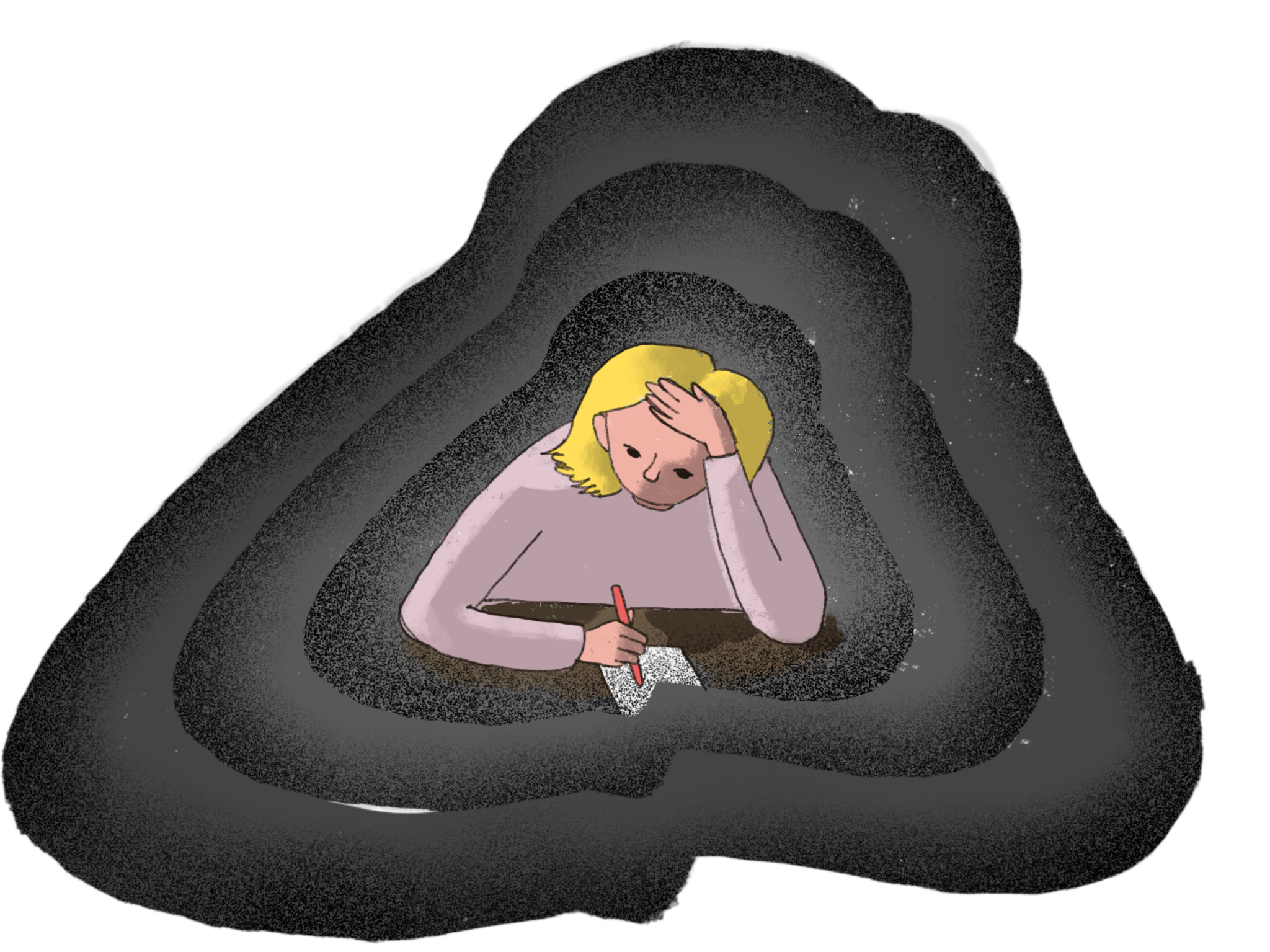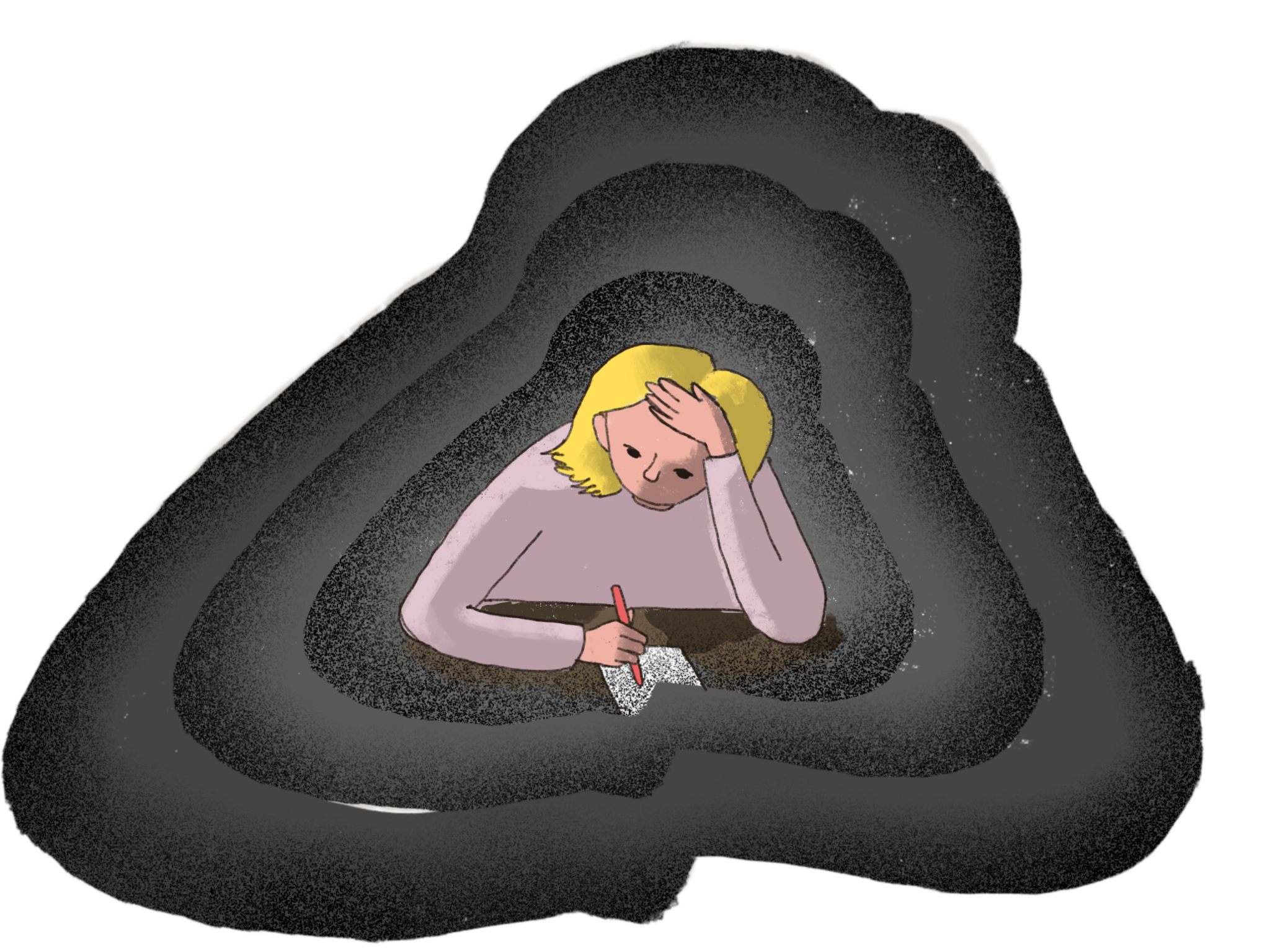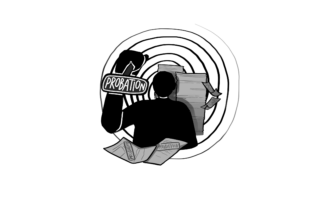

This editorial represents the opinion of 11 of the 14 Outlook editors.
Since the transition to online school, students have reported significant increases in fatigue and stress. In a study conducted by Texas A&M University, 71% of 195 interviewed college students indicated spikes in anxiety due to the COVID-19 pandemic. The culmination of this stress reflects in academic performance — over 9.6% of Aragon students had a combination of three or more D’s and F’s for the fall 2020 semester. The editors of the Outlook believe that Aragon teachers should adopt empathetic teaching and grading practices while taking into consideration challenging circumstances due to the pandemic.
With the reduced quality of education, it is unreasonable to hold students to in-person standards. Decreased instructional hours have led many teachers to pack class periods with content-heavy lectures, sparing little time for collaborative work or other supplemental educational tools.
The issue of strict grading appears more significant in AP classes where teachers prepare students to grasp rigorous college content. Some AP teachers believe that their students should not be able to receive credit for late work or perform test corrections as they are taking a college level course and should be held to the same standards as college students. However, this would be unrealistic, as high school students’ circumstances vary greatly from college students’. Apart from the similarity in the content being taught, high school students take more classes than college students, spend more lecture time in front of the screen and most do not yet have the mental and emotional maturity of adults. The online format of this year necessitates teaching college content with high school grading practices like accepting late work and allowing students to prove mastery through retakes.
“With reduced quality of education, It is unreasonable to hold [students] to in-person standards”
While it is challenging to ensure that students are provided with the necessary material for tests, AP exams and future coursework, the lack of interaction between students and teachers has led to an overall decrease in motivation to absorb content and ultimately keep up their good grades.
In some classes, teachers do not accept late work a minute after the set deadline, and in others, students are subject to weekly assessments despite decreased learning quality and instructional minutes. Some quizzes and tests have become even more difficult to take online, as students are prone to family distractions, Zoom fatigue, unstable Wi-Fi and technical issues. Despite these added challenges, some teachers have increased the grade weight of tests, causing students to experience significant grade changes from a single test.
We propose that teachers accept late work for some amount of credit for students experiencing rapid pacing of assignments and declining mental health and well-being. Because teachers may not be privy to each student’s circumstances, they should cast a larger net for a late-work grading policy. By accepting late work for partial credit at the least, teachers would do away with the unnecessary stress of strict deadlines.
We believe that a student’s change in comprehension is the best metric for their academic engagement and leniency through some form of mandatory test makeup would grant them an opportunity to fill content gaps. In our experience, classes that offer revised makeup tests succeed at reinforcing a long-term grasp of content while easing students’ stress. With only brief feedback in Canvas comments to shape students’ understanding of the content before and after assessments, learning in an online format becomes a monumental task. While providing more individualized feedback may be a time-consuming feat, these comments are central to student growth and motivation and should not be overlooked.
“Over 9.6% of Aragon students had three or more D’s and F’s for the fall 2020 semester”
Special circumstances have arisen in the online world that warrant more empathetic grading and teaching measures. According to the National Survey on Drug Use and Health, 35% of teenagers who were receiving mental health services between 2012 to 2015 did so exclusively through school. Online learning strips students of the opportunity to have face-to-face discussions with wellness counselors, decreasing the quality of mental health care. Without in-person interaction, teachers may be unable to notice symptoms of mental illness in students in the same way that they would if the school were in person, as these symptoms may manifest themselves through students’ body language, facial expressions or eye contact, all of which are difficult to discern through a screen, according to the High Focus Center. While resources are available, students may be reluctant to seek help due to the stigma surrounding mental health and the emotional burden placed on students to reach out to online counselors.
Limited social interaction, prolonged loneliness and uncertainty about the future make it difficult for adolescents to feel motivated and complete everyday tasks. According to a 2019 study of middle schoolers, students who had positive interactions with classmates and felt cared for by teachers were more likely to engage in learning, felt confident about their academic abilities and were a lot more interested in completing their assignments. Online classes lack crucial facilitation of conversation and positive interaction between classmates and teachers; group work is difficult and awkward over Zoom, and some students may choose to not participate at all.
Aragon students experience a culture of perfectionism and academic rigor, which leads to stress and oftentimes burnout. It is essential that teachers make strides to reassure students that their mental health and overall well-being, especially during the COVID-19 pandemic, takes precedence over any examination or assignment.


